Here is a reminder of the traditional laws of the Fast from a priest of tradition:
In Lent, we eat 1 full meal of the day. Two small meals that do not equal one full meal.
On Fridays, we never eat MEAT!
We do not eat meat on Fridays because that is the day that Christ died. We do not eat flesh meat because that is the day that the Flesh of the Son of God was crucified.
We observe the great penances that Mother Church gives us.
Sunday is never a fast day — it is the day that Christ rose from the dead. +
Why do we fast? What guidelines do we follow?
Over the years I have shared much on this topic as we have journeyed to the traditions of the Church.
The short answer:
We fast for many reasons: to imitate Christ, for penance, and to conquer ourselves among them. And we fast out of obedience: Our Lord and His Apostles tell us to.
I follow the traditional laws of fasting of the Catholic Church (before modernizations, according to the Catholic rite 1950) as my season in life permits.
- Communion fast starting at midnight, if possible, or at least three hours before Holy Mass.
- On days of fast we go eat at a specific time, less than one meal (Black Fast) OR eat principal/full meal and two smaller meals (that add up to less than a full meal).
- No meat or meat products are consumed on days of complete abstinence.
- Eating between meals is not permitted, but liquids, including milk* and fruit juices,* may be taken any time on a fast day.
- Meat may be taken at the principal meal on days of partial abstinence.
In the many years that I was not bound to fast due to pregnancy, nursing, or health (per the direction of my confessor — priest of tradition), I followed what good traditional bishops once urged the faithful:
- attend daily Mass during the period of fast and abstinence
- say all or part of the Divine Office or the Little Office of the BVM
- pray an extra rosary
- receive Holy Communion often
- take part more frequently in exercises of piety
- give generously to works of religion & charity
- perform acts of kindness toward the sick, the aged, and the poor
- practice voluntary self-denial
- pray more fervently
➕
“Fasting cleanses the soul, raises the mind, subjects one’s flesh to the spirit, renders the heart contrite and humble, scatters the clouds of concupiscence, quenches the fire of lust, and kindles the true light of chastity. Enter again into yourself.” #StAugustine
“Fasting is the support of our soul: it gives us wings to ascend on high, and to enjoy the highest contemplation! […] God, like an indulgent father, offers us a cure by fasting.” #StJohnChrysostom
*I don’t eat these things in my regular diet for health reasons.
As a help in understanding the Church’s discipline of fast and abstinence, here is a summary of the requirements, both current and those in force in 1962. It has been excerpted from the Liturgical Ordo published by the Priestly Fraternity of St. Peter.
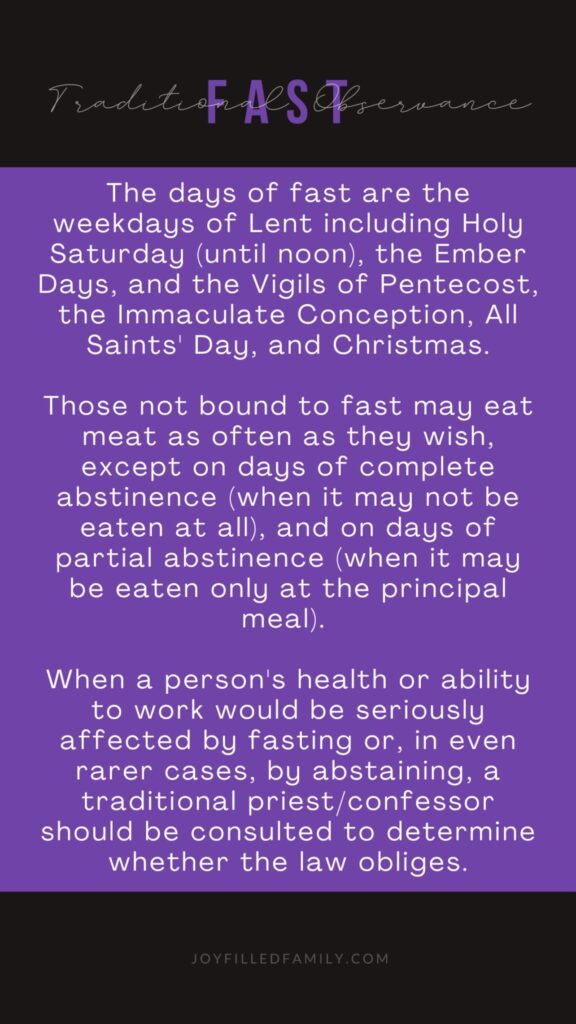
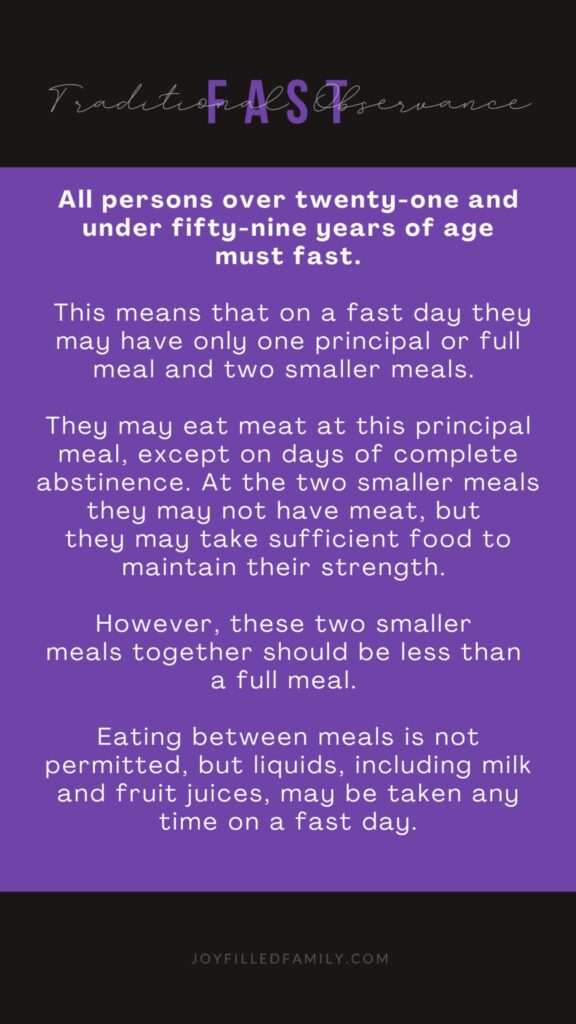
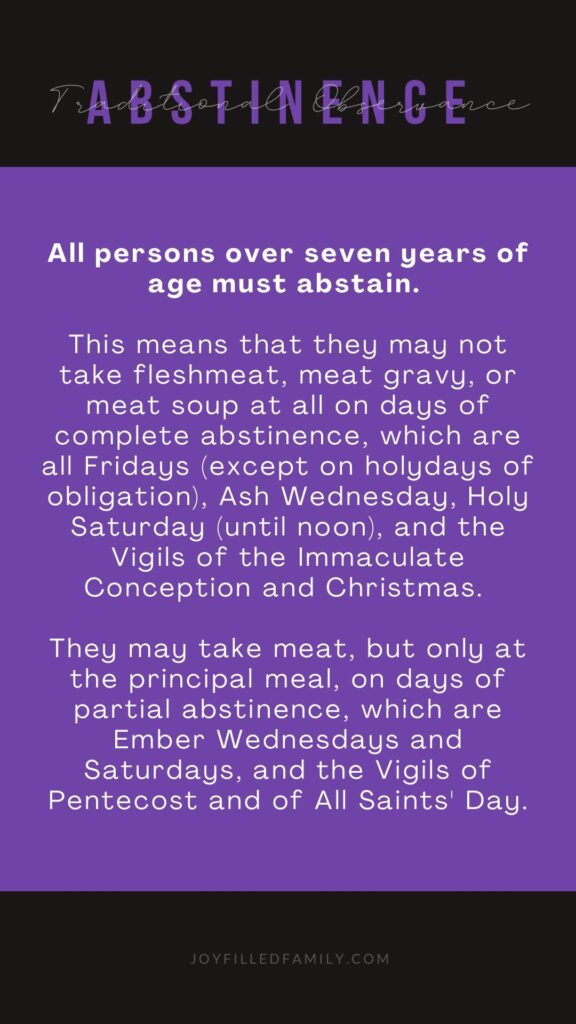
Fasting & Abstinence
Current Practice vs. 1962 Discipline
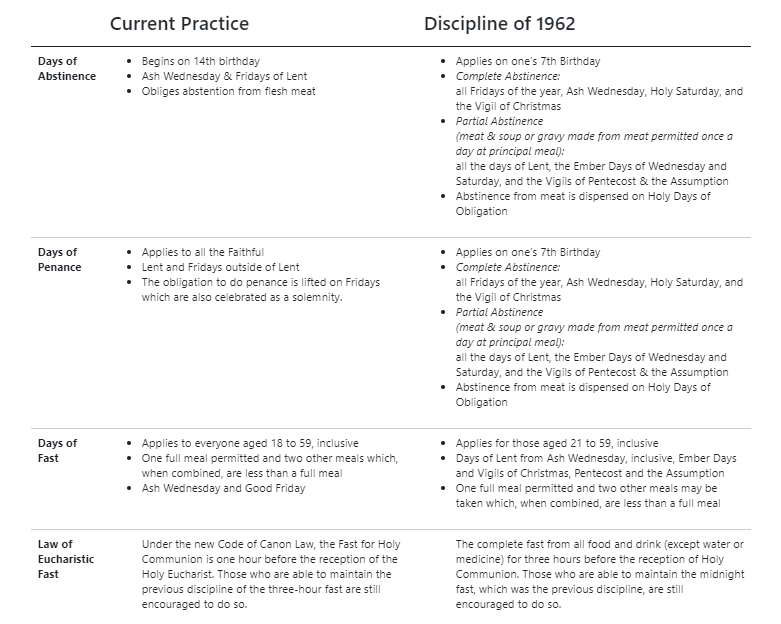
SERMONS DISCUSSING FASTING:
- Quinquagesima: Prayer, Fasting, & Almsgiving During Lent – Audio Sermon
- Quinquagesima Lent: Prayer, Fasting, Charity – Audio Sermon
- We Must Fast to do Reparation – Audio Sermon
- Fasting Becoming Holy | Exorcist Fr Ripperger – Audio Sermon
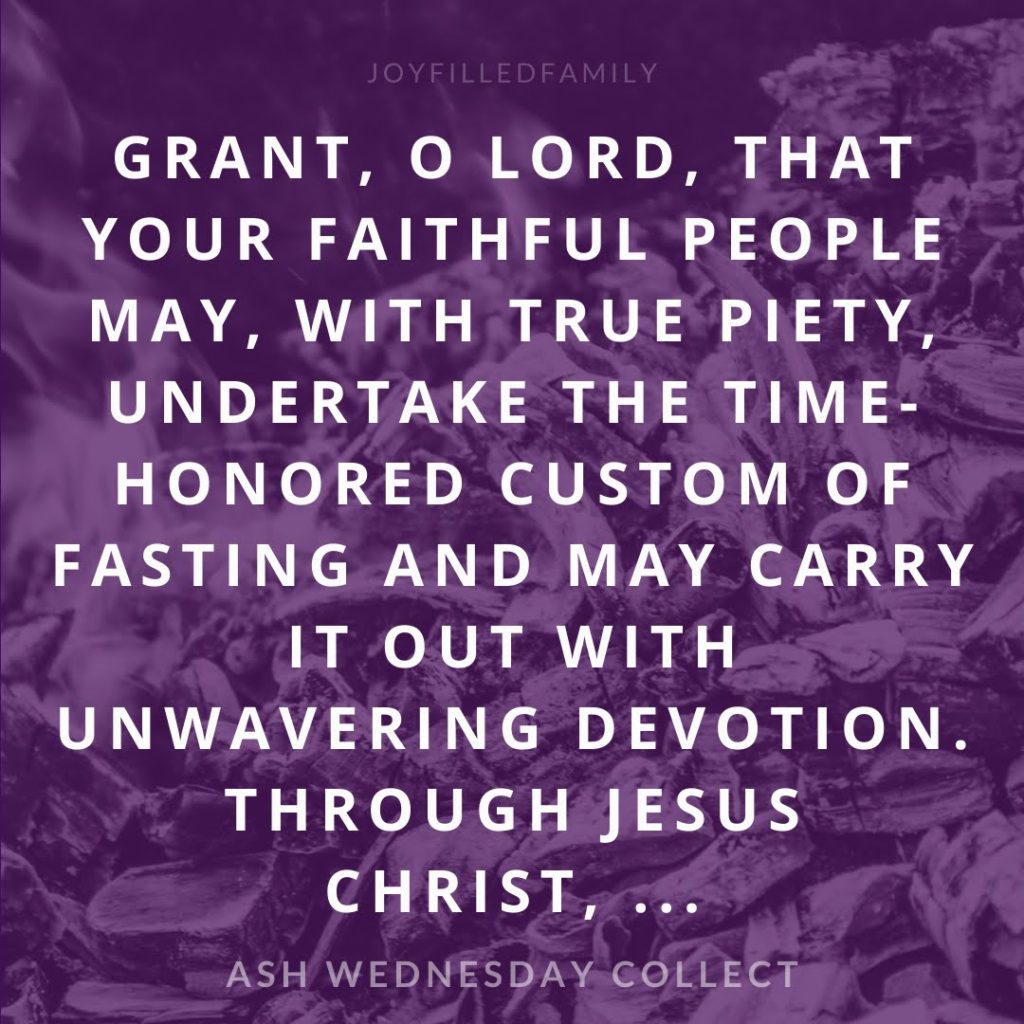
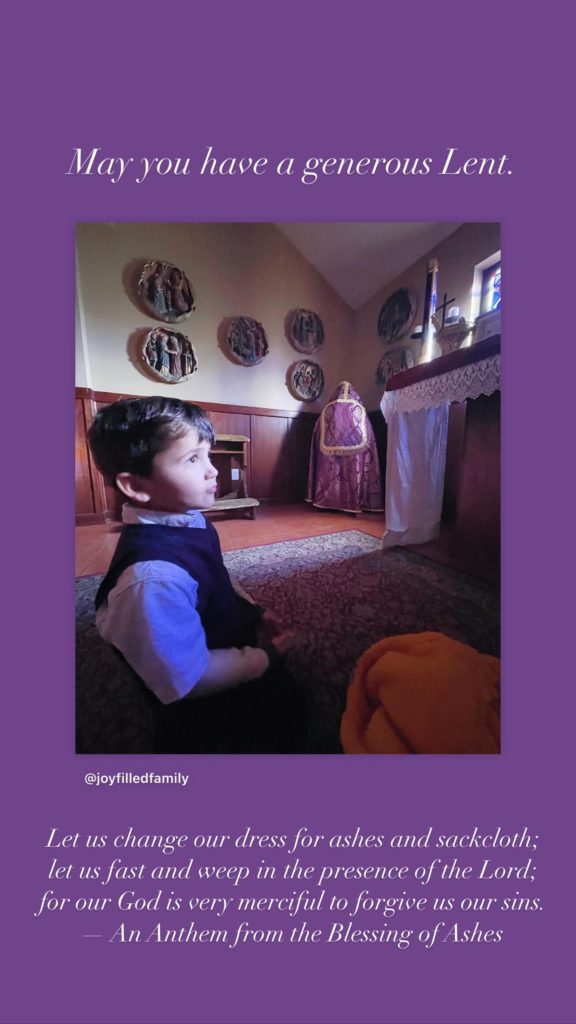
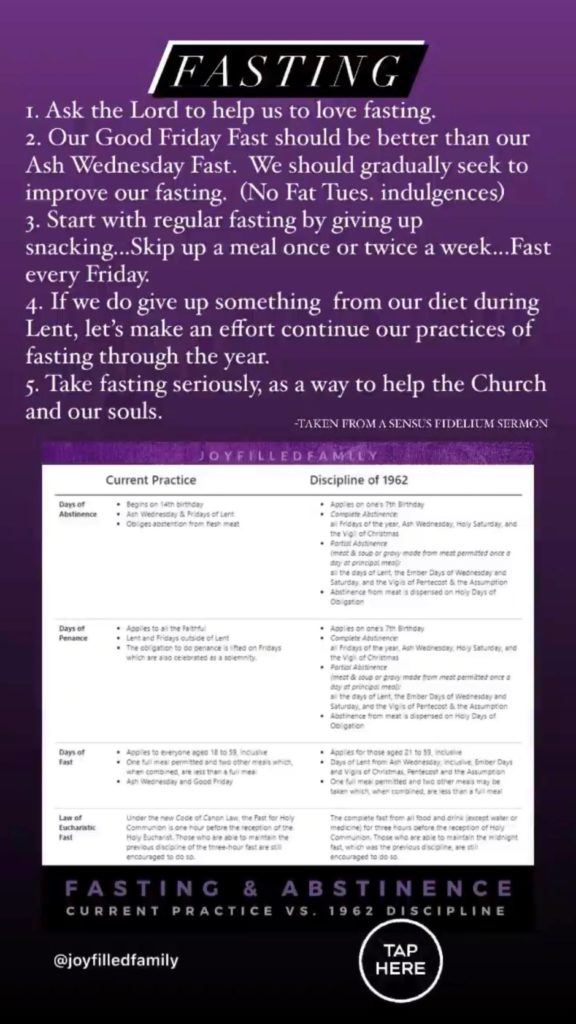
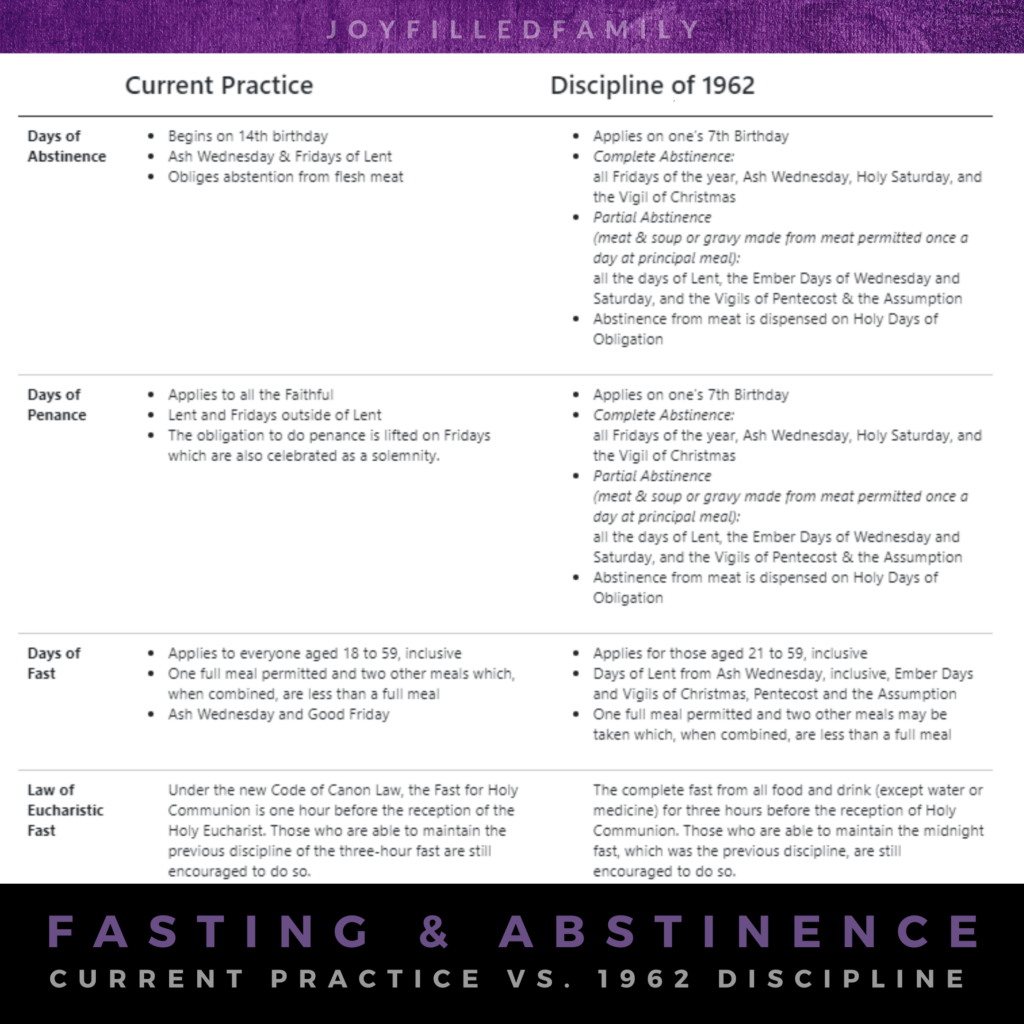
Leave a Reply